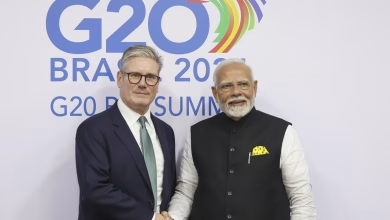David Beckham Teams Up with AliExpress to Boost Global Sales

- David Beckham signs as AliExpress brand ambassador.
- AliExpress sponsors UEFA Euro 2024 to boost global sales.
- AliExpress competes with rival Temu in cross-border e-commerce
- Alibaba invests aggressively to drive global growth.
AliExpress, a subsidiary of Chinese e-commerce giant Alibaba, has appointed former England soccer captain David Beckham as its brand ambassador in a bid to boost global sales and catch up with rival PDD Holdings’ Temu. This move marks a significant step in Alibaba’s aggressive investment strategy to expand its international presence as domestic e-commerce growth slows down.
Alibaba’s international division, which includes AliExpress, has emerged as the company’s fastest-growing unit, with revenues surging 45% year-on-year over January to March. The company is now investing heavily to enhance its global logistics and delivery capabilities, offering five-day delivery windows to 11 markets on a selection of products.
Earlier this year, AliExpress signed on as a sponsor of the UEFA Euro 2024 tournament, which starts in June, where it will invest millions of dollars in discounts, deals, and engagement to attract online consumers. As part of this sponsorship, an advertisement campaign featuring David Beckham will run in conjunction with the UEFA tournament, encouraging consumers to “score more with AliExpress”.
This move follows the success of PDD Holdings’ Temu, which aired multiple commercials at the Super Bowl this year, encouraging U.S. consumers to “shop like a billionaire”. According to mobile intelligence firm Apptopia, Temu’s app downloads jumped 34% on Super Bowl Sunday from the day before.
Humphrey Ho, U.S. managing partner at digital advertising agency Hylink Digital, noted that football fans in Europe, Latin America, and North America share similar demographics, including being price-sensitive and inflation-impacted consumers. This makes them an attractive target audience for e-commerce platforms like AliExpress and Temu.
Alibaba has long recognized the overseas market as a potential growth driver, with founder Jack Ma stating in 2017 that the company aimed to serve 2 billion global consumers by 2036. However, the company has struggled to execute its international ambitions, ceding ground to rivals like Temu in many markets.
Temu, which was launched in 2022, has grown rapidly in popularity, selling affordable products like $5 earbuds and $10 dresses to over 60 global markets. Chinese investment management firm CICC estimates that Temu generated $18 billion in revenue in 2023, although PDD Holdings does not break out revenue for Temu separately.
To better compete with rivals, Alibaba is leveraging its competitive advantages, including its investments in global logistics. The buyback of logistics arm Cainiao in March is likely to strengthen AliExpress’s logistical advantages over rivals. AliExpress has a presence in over 100 markets, and Alibaba has the resources and determination to invest in growth.
However, the competitive landscape is forcing Alibaba’s hand, changing the dynamics of cross-border e-commerce from China. According to Jianggan Li, founder and CEO of Momentum Works, a venture and insights firm, AliExpress must find a way to compete with and differentiate itself from Temu in order to win market share.
Alibaba’s appointment of David Beckham as brand ambassador for AliExpress marks a significant step in its efforts to boost global sales and catch up with rival Temu. With its aggressive investment strategy and competitive advantages, AliExpress is well-positioned to compete in the cross-border e-commerce market and achieve its growth ambitions.






